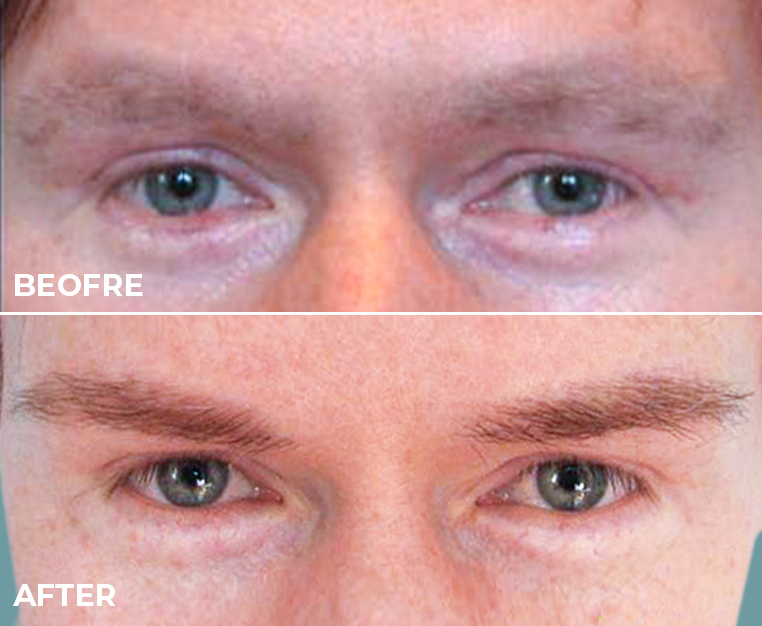Hair restoration procedures, including hair transplants, are often categorised under the term ‘cosmetic surgery’. Is that an accurate description of hair restoration work? Whatever one’s views on cosmetic surgery, there can be little doubt that the term carries a slightly pejorative air about it. One dictionary definition of ‘cosmetic’, for example, gives its meaning as ‘affecting only the appearance of something rather than its substance’. If one accepts this definition, it follows that those who seek out hair restoration treatments are concerned only with their appearance.
This article will look at why that perception is both wrong and unhelpful. Keep scrolling to learn more!
Depression
Tennis player Andre Agassi described in his autobiography how losing his hair as a young man was like losing “little pieces of my identity”. Those who believe that hair restoration is all about superficial appearances would do well to consider that statement and imagine how it would feel for someone experiencing that.
Agassi’s description of his hair loss as an assault on his identity is supported by a solid body of academic evidence showing how an individual’s self-esteem is affected by alopecia. The link between baldness and lower self-esteem has been accepted for some years. In 2005, for example, Dr Ramon Grimalt of the University of Barcelona produced a study in which he noted that ‘some men with androgenetic alopecia (AGA) appear to have a lower self-image, depression resulting in increased introversion, and increased feelings of unattractiveness.’
Grimalt’s identification of depression as a possible consequence of baldness is significant, as it highlights the fact that hair loss is no trivial matter. His work was followed in 2009 by a study undertaken by the University of Westminster’s Department of Psychology which concluded that alopecia can impact an individual’s quality of life because of the negative beliefs and emotions that surround the condition. The very fact that psychologists were able to study and measure the negative effects of hair loss shows that the condition is much more than a cosmetic issue.
Self-Esteem
In 2018, Chinese researchers set out to assess the impact of a hair transplant on an individual’s self-esteem. The trial group consisted of men with AGA. The study concluded that ‘hair transplantation significantly elevated self-esteem level and increased satisfaction with appearance of AGA patients.’
The study also noted that physicians who carry out hair transplants rarely test clients for an improvement in self-esteem. Understandably, their post-op evaluations tend to focus on a client’s satisfaction with how their new hair looks in terms of its density, naturalness and so forth; improvements to the client’s mental well-being are not usually a key performance indicator for many clinics. This begs the question, are clinics underselling one of the most significant benefits of hair restoration treatment?
Why It Matters
A 2005 study found that there was a noticeable gap in five European countries between the number of people requiring hair loss treatment and the number of individuals getting it. The study recommended further work to determine the reasons behind this imbalance. The main reason, one suspects, is that hair loss treatment still has the stigma of a cosmetic project attached to it. That’s why hair loss must be seen for what it is, a condition that can have serious psychological consequences for the sufferer. Casting the problems as a vanity issue rather than a health one means that many people will be dissuaded from taking up treatment.
There are signs that progress is being made in addressing these negative perceptions. Statistics produced by the International Society of Hair Restoration Surgery (ISHRS) show a sharp rise in the number of people around the world choosing to have hair restoration treatments. The rise is being driven, in part, by the willingness of famous people to discuss their hair loss problems publicly. Hearing celebrated actors, athletes and musicians talk about how losing their hair affected them deeply and how treatment helped them has normalised things for many ordinary citizens. The message is starting to get through; you don’t have to let baldness affect your self-esteem and quality of life.
Conclusion
It is now accepted that hair loss can trigger some serious psychological issues in those experiencing it. This includes a loss of self-esteem and a slide into depression. Despite this, hair restoration treatment is still viewed as a vanity project, something which deters many people from taking up treatment and improving their quality of life.
If you’re experiencing hair loss, you shouldn’t put off getting it checked, as hair restoration treatments are most effective when the problem is picked up at an early stage. Vinci Hair Clinic offers a free, no-obligation consultation to all its new customers. This consultation can be face-to-face at one of our many clinics worldwide or by using photographs on WhatsApp. Make today the day you book an appointment!


